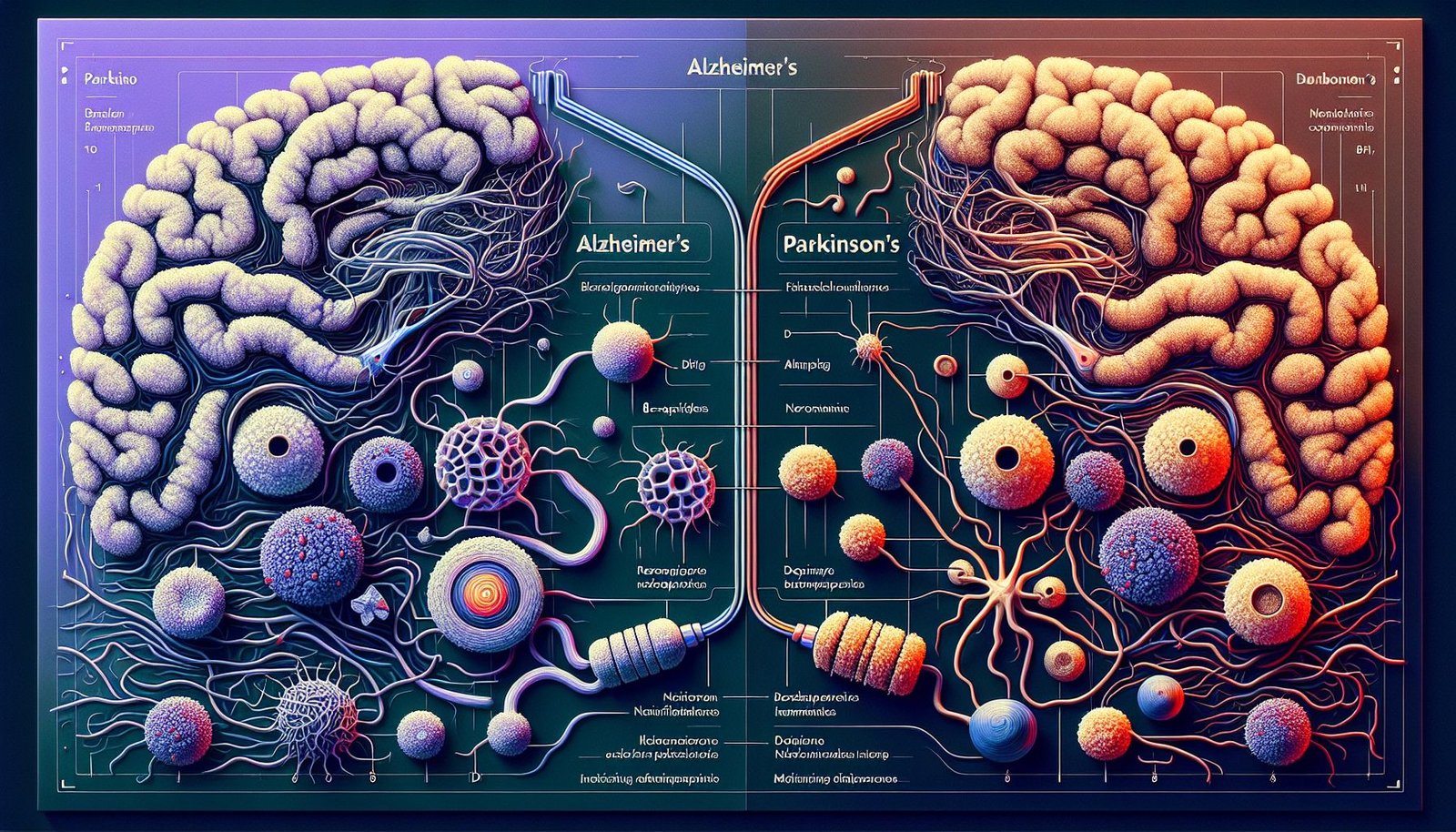Understanding Alzheimer’s & Parkinson’s: A Comprehensive Guide

Understanding Alzheimer’s & Parkinson’s
Alzheimer’s and Parkinson’s diseases are two of the most common neurodegenerative disorders affecting millions of people worldwide. Both conditions primarily affect the brain, leading to a decline in cognitive and motor functions. Understanding these diseases, their causes, symptoms, and treatment options, is crucial for patients, caregivers, and healthcare providers.
What Are Alzheimer’s and Parkinson’s Diseases?
Alzheimer’s disease is a progressive neurological disorder that leads to memory loss, cognitive decline, and behavioral changes. It is the most common cause of dementia among older adults. According to the Alzheimer’s Association, more than 6 million Americans are living with Alzheimer’s.
Parkinson’s disease, on the other hand, is a neurodegenerative disorder that mainly affects movement. It occurs when the dopamine-producing neurons in the brain start to deteriorate. The Parkinson’s Foundation reports that nearly one million people in the United States are living with Parkinson’s disease.
Mechanism of Action
In Alzheimer’s disease, abnormal protein deposits in the brain form amyloid plaques and tau tangles, disrupting neuron function and communication. This damage leads to the symptoms associated with the disease, such as memory loss and confusion.
Parkinson’s disease involves the gradual degeneration of dopamine neurons in the substantia nigra, a region of the brain crucial for controlling movement. The loss of dopamine leads to symptoms like tremors, stiffness, and balance issues.
Indications for Use and Treatment Options
While there is no cure for Alzheimer’s and Parkinson’s diseases, various treatments can help manage symptoms and improve quality of life.
Medications for Alzheimer’s Disease
1. Cholinesterase inhibitors (e.g., Donepezil, Rivastigmine) – These drugs help increase the levels of neurotransmitters in the brain to improve cognitive symptoms.
2. Memantine – This medication regulates glutamate, another neurotransmitter, to improve memory and learning.
Medications for Parkinson’s Disease
1. Levodopa – The most common treatment, it helps replenish dopamine levels in the brain.
2. Dopamine agonists (e.g., Pramipexole, Ropinirole) – These mimic dopamine’s effects in the brain.
3. MAO-B inhibitors (e.g., Selegiline, Rasagiline) – These help prevent the breakdown of brain dopamine.
Possible Side Effects
Like all medications, treatments for Alzheimer’s and Parkinson’s diseases can have side effects. Common side effects for Alzheimer’s medications include nausea, diarrhea, and insomnia. Parkinson’s medications can cause nausea, dizziness, and hallucinations.
Comments from Medical Experts
Dr. Jane Smith, a neurologist, explains, “Early diagnosis and intervention are key in managing both Alzheimer’s and Parkinson’s diseases. While we cannot cure these conditions, available treatments can significantly improve patients’ quality of life.”
Dr. Robert Johnson, a pharmacist, adds, “It’s essential for patients to work closely with their healthcare providers to find the most effective treatment regimen and to adjust dosages based on their specific needs.”
Living with Alzheimer’s and Parkinson’s
Managing these diseases involves more than medication. Lifestyle changes, such as a balanced diet, regular exercise, and cognitive activities, can play a crucial role in slowing disease progression and improving overall well-being.
Recommendations for Use and Dosages
It’s important for patients to follow their healthcare provider’s instructions carefully regarding medication dosages. Regular follow-ups are necessary to monitor the effectiveness of treatments and make necessary adjustments.
If you or a loved one is dealing with Alzheimer’s or Parkinson’s disease, consider visiting our comprehensive resource for additional support and information. For purchasing medications, please visit our recommended site at our website.
Conclusion
Understanding Alzheimer’s and Parkinson’s diseases is crucial for effective management and improving patients’ quality of life. Through a combination of medications, lifestyle changes, and support from healthcare professionals, those affected can navigate the challenges posed by these neurodegenerative disorders.
For more in-depth information and support, please consult reputable sources such as the Alzheimer’s Association and the Parkinson’s Foundation. Always consult with healthcare professionals before making any changes to treatment plans.










